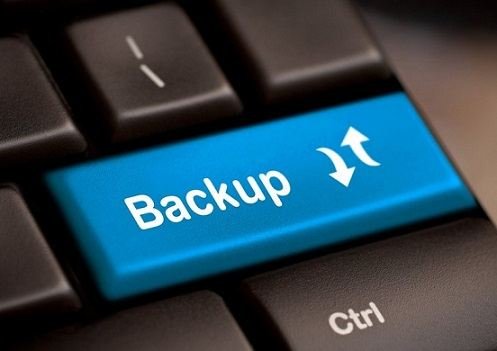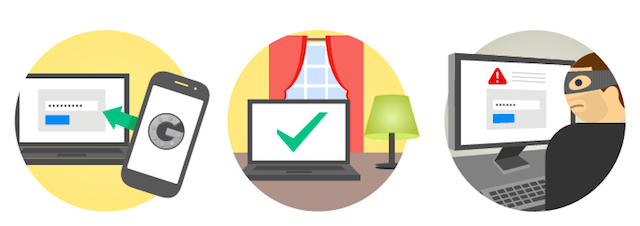
WARNING: If you are new to this space, this article may scare you off and this is not my intention. I just want to emphasize the importance of security and safe internet practises.
The bitcoin world or as its otherwise known, the cryptospace, has been plagued by abusive practices, so users who don't take the appropriate precautions can lose everything!
Thankfully there are a lot of people, groups and organizations out there trying to make the cryptospace an easy, pleasant and safe place to be, unfortunately though, they have a long road ahead since as of today, December 2017, it’s still a place of difficulty, instability and risk. And the threats aren't just abstract or theoretical;

Here are some examples to keep in mind: Bitcoin Savings and Trust (BCS&T), Bitcoinica, Bitfloor, MyBitcoin, The Great 420 scam, DAO, MtGox, Bitstamp, Bitfinex, Tether, Bithumb, CoinDash, Veritaseum, Parity Technologies, Nicehash, YouBit, 280 million Bug with frozen ETH, the very recent EtherDelta hack and so many more cases.
But it's not just the big wallets that are targeted, most hackers are actually more active trying to scam and hack individuals since they are easier targets and less likely to “bite” back, just google “I was hacked, bitcoin”.
So hacks, scams, fake wallets, phishing attempts, fake ICO’s and bugs in computer code are all concerns that we need to be aware off. But it doesn't end there since we must also look out for the human-error factor. Its not uncommon for users to send coins to the wrong address or reveal their private keys or even forget to back them up and loose them! The following tips are not a guarantee for the safety of your coins, but will surely help you guard them against the most common threats.

TIP 1: Keep backups both onsite & offsite
Always backup your passwords in whatever form they may be in such as passphrases, recovery seeds, security keys, PIN's , etc. Its very important to be religious about the backup process. Hardware and software can be replaced but not your data - once its gone, its gone for good. So backing-up your passwords is very important, and It should be done at the moment of creation. For example when you install a new wallet and are presented with your very own password, copy it using a screen-grabber and also print it out or copy it on a piece of paper. Put them in a SAFE place meaning somewhere accessible to you and not to any intruder and as soon as you finish setting up your wallet or account double check the validity of that password. While on the subject of passwords, you may also want to make sure you have a sheet somewhere with details of all accounts and related passwords ready to be used by your second half or other close relative in case of death! Yep, a lot of us buy into a promising ICO thinking it will be a good investment for our kids but we also need to make sure they end up with the ability to receive that gift, so an instruction sheet with your password backups is essential!
TIP 2: Never store coins on an exchange
When you buy your first coins, you may be tempted to store them on the exchange. An exchange though, is definitely not a safe place to hold coins for long periods. Not only can they become unaccessible due to technical problems but they can be hacked and as seen in the examples above they get hacked quite often!! So don't keep “large” sums on an exchange, move them to a wallet!
Core wallet: Long term investments usually go hand in hand with cold storage. That’s when you store your coins offline for a long hold strategy. So after investing in a coin for a hold, your first move will be to transfer the coins from the exchange where you bought them from to a core wallet such as Electrum. Core wallets are no frills and designed to be stable and remain compatible with future versions of the wallet.
Multi-coin wallet: On the other hand, if you plan to trade coins on a regular basis then a more versatile solution is needed and thats where a faster and easier multi-coin wallet comes to play, such as Exodus. Convenience though usually comes at the cost of security, so they may be faster in operation and much easier to use but obviously not as safe as a core wallet.
Hardware wallet: But the wallet to rule them all, is a hardware wallet such as the Trezor or Nano ledger. These are small portable devices, much like a USB stick but offer hardware encryption, an LCD and a couple of buttons for navigation which makes them easy to store offsite and offline. You could just use a simple USB stick with the free Veracrypt software but for a few bucks the Trezor and Nano offer great security and are easy to use, though coin limited, so check what coins are supported before buying a hardware wallet!
Mobile wallet: No one should be using a phone for primary storage! And I'm not referring to everyday spending wallets or other debit cards that use crypto, I'm talking about actual wallets on a mobile device such as Jaxx or Mycellium. If you only want to handle small amounts for everyday expenses then yes, they offer a great convenience, but for actual long term "storage" use a hardware wallet or a core wallet on a desktop computer.
Paper wallet: Paper wallets are another option for those who wish to have their own private wallets but can't have access to a hardware wallet. Paper wallets are free but require some knowledge to set up properly. I personaly dont like paper wallets, they are easy to destroy, lose or misplace and once you loose that piece of paper you can kiss your bitcoin goodbye - unless you have a backup! In short, this type of wallet is too fragile for holding a small fortune though its an option.

TIP 3: Don't FOMO
You have probably heard other traders warn about FOMO which is a very real and an emotional condition that can lead to loss of coins due to bad trading decisions. FOMO stands for “Fear Of Missing Out” and is a condition you will quickly learn to avoid at all costs cause it's not only possible to make bad trading decisions but FOMO may also lead to weakening or eliminating your safety net that is protecting your personal crypto environment. Just last month, a friend of mine who was in a state of FOMO, joined a telegram group only to find a way to buy into an ICO and fell victim to the most lame phishing scam. He got a message from an Admin that said: “Yes, you can still join our ICO, just send your info to SUPPORT.WACOlN.IO . Being a veteran computer geek the first thing he did was to check the e-mail address. So he visited the official website, and found the support email that was the same so he went ahead with the KYC process and later sent his 1 ETH which at the time was worth $500. He later found out the hard way that support.wacoin.io is not the same as support.wacoln.io which in capital look almost the same!
And there are so many stories of people being scammed, so the cryptospace is not a place to be off guard! So try to not feel left behind when you read about other traders always ridding a new coin thats doing well. Always make calm and calculated moves and never FOMO when an opportunity just passed you by! There will always be another chance for something good.

TIP 4: Basic internet safety
Mac or Linux: Sorry to say, but if you are using Windows and thinking of entering the cryptospace, you are an ixd@#i$o%&t. If you do have a Windows machine, I would suggest you format your hard drive and install any Linux distro, I highly recommend Linux Mint or even Elementary OS, or sell your Windows laptop and get a MacBook.
Password Manager: Use a password manager such as Enpass onsite (not on the cloud) and never ever use the same password for anything. If you do go for the cloud route, be very careful of the company you trust, and make sure you can encrypt your database file.
2FA: Wherever possible, on exchanges, wallets, minning sites etc, always use 2FA (Two-factor authentication), preferably from google.
Secured e-mails: Use all security measures offered by your e-mail provider such as SMS and 2FA , etc plus use a strong and complex password.
Smartphone or iPhone: Use a clean smart phone, preferabbly iOS or Android with all security measures in place so no one can get to your data, either by stealing your phone or by transferring your SIM iD to their own device.
Best habbit: A very good habit to get into is to double check the send and receive addresses that you copy & paste. Always check the first and last few digits so you can ensure that the right address is copied over. The trojan Cryptoshuffler is always on the prowl ready to switch addresses.
DNS Server: Use OpenDNS server or something similar on your laptop or home router to filter your internet traffic.
Avoid dark web: Always make sure you use safe internet practices such as avoiding porn sites, torrent sites and the dark web in general.
Antivirus: On Mac and Linux machines, an antivirus program is not necessary but every so often it's a good idea to load something that can find any malware or Trojans. For Window users, a paid subscription for a good internet security package is a must though probably futile - just get rid of Windows and be done with it.
TIP 5: Being responsible and understanding the risks
The big attraction to bitcoin is the fact that there are no greedy banks and no middle men to eat away from your hard earned money, which means you are your own boss, you are your own bank! But with great power comes great responsibility!
In the state that the cryptospace is in at the moment, if you think TIP 4 is too much work or some of it you don't understand, meaning you are not very computer savvy, then you probably shouldn't be handling any crypto coins. Lets be honest, the cryptospace is neither safe nor user friendly. You can't dispute a transaction, you can't reset a forgotten or lost password and unfortunately, you cant call for help if one day you wake-up to find your bitcoin wallet empty!
In closing, It takes skill and personal responsibility to secure your cryptocurrencies, if you are not comfortable with that, then don't own cryptocurrencies at all!
UPVOTE & SHARE
If you enjoyed this article I would really appreciate an upvote ;-) You could also help me by resteeming my article for others to find and read, thanks!
Enjoy the vote and reward!
Hi. I am @greetbot - a bot that uses AI to look for newbies who write good content!

Your post was approved by me. As reward it will be resteemed by a resteeming service.
Resteemed by @resteembot! Good Luck!
The resteem was paid by @greetbot
Curious?
The @resteembot's introduction post
Get more from @resteembot with the #resteembotsentme initiative
Check out the great posts I already resteemed.
great read
Great article! Thanks for the tips :)
Did one bot just vote up another bot?